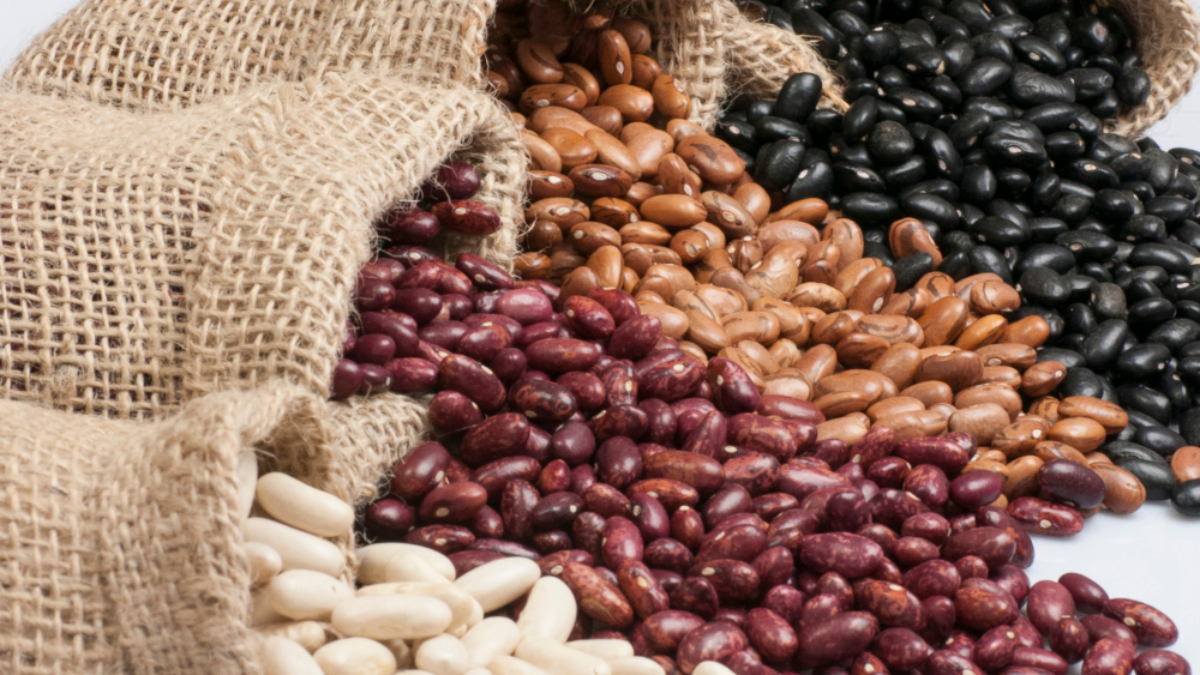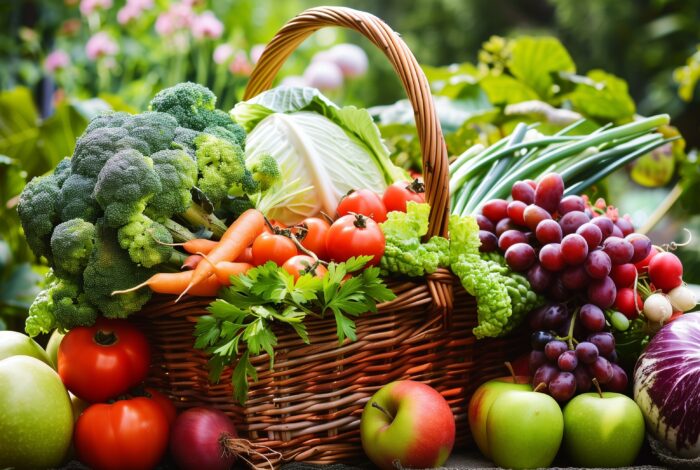Beans are a staple food of Greek cuisine.
They are legumes, and there are various types, differing in characteristics such as colour, size and flavour.
Some of the most popular beans in Greece are white beans, which are used to make a favourite traditional dish, fasolada (navy bean soup), and giant beans, ideal for dishes such as giant baked beans, in which they are prepared in a tomato and herb sauce.
Greece produces PDO beans – such as Feneos Vanilla Beans, Prespa Giant Beans (also known as elephant beans), and Kato Nevrokopi Beans – which are renowned for their quality and unique characteristics.
| Nutritional Value of White Beans | per serving: 1 cup, cooked (179 g)1 | RDI per serving2 |
| Kcal | 249.0 | 12.4% |
| Fat (g) | 0.6 | 0.9% |
| Saturated fat (g) | 0.2 | 0.8% |
| Carbohydrates (g) | 44.9 | 16.3% |
| Fiber (g) | 11.3 | 40.3% |
| Sugar (g) | 0.6 | 0.6% |
| Protein (g) | 17.4 | 34.7% |
| Cholesterol (mg) | 0.0 | 0.0% |
| Salt (g) | 0.02 | 0.0% |
| 1 Values are based on the U.S. Department of Agriculture (USDA) nutrient database.[1] 2 The percentage of Recommended Daily Intake (% RDI) shows how much of the recommended daily intake of each nutrient is contained in a single serving. Calculations are based on U.S. Food and Drug Administration (FDA) daily values, based on 2,000 Kcal per day for an average healthy adult. Depending on an individual’s energy needs, % RDI can be lower or higher. | ||
Beans are a highly nutritious food, naturally combining various macro- and micronutrients vital to our health.
Specifically, beans are one of the main sources of plant protein, which is especially important for people who are fasting or who follow a vegetarian diet.
At the same time, they are an excellent source of plant fibers, substances vital to good bowel health.
In addition to their high protein and fiber content, beans are an excellent source of B vitamins, such as folic acid, and important trace elements, including iron, magnesium, copper and manganese.
Thanks to their nutritional profile, beans can be a strong ally for our health.
Consumption of legumes, including beans, can have significant benefits for heart health. A meta-analysis of seven prospective studies showed that higher legume intake is associated with an 8% reduction in the risk of cardiovascular events.[2]
Their cardioprotective action may derive from the improvement of cardiovascular risk factors such as disturbed lipid profile. Specifically, consumption of legumes appears to reduce levels of total and “bad” cholesterol (LDL-C).[3]
Beans may also contribute to better management of body weight, as they are a high-fiber food. Fiber is known to promote satiation and help control feelings of hunger. This reduces the likelihood of overeating, helping us manage our energy intake and, by extension, our weight.
Beans can also help manage diabetes by improving blood sugar regulation, and they may offer protection against certain types of cancer, thanks to their nutritional makeup.
In conclusion, incorporating beans into our diet offers multiple health benefits, making them an excellent choice for everyone.
BIBLIOGRAPHY
[1] USDA. Food search. Beans, white, mature seeds, cooked, boiled, without salt. Available at: https://fdc.nal.usda.gov/fdc-app.html#/food-details/175203/nutrients. (Accessed October 2024).
[2] Viguiliouk E, Glenn A, Nishi S, Chiavaroli L, Seider M, Khan T, Bonaccio M, Iacoviello L. Associations between dietary pulses alone or with other legumes and cardiometabolic disease outcomes: an umbrella review and updated systematic review and meta-analysis of prospective cohort studies. Advances in Nutrition. 2019 10(4):S308–S319. https://doi.org/10.1093/advances/nmz113.
[3] Thorisdottir B, Arnesen E, Bärebring L, Dierkes J, Lamberg-Allardt C, Ramel A, Nwaru B, Söderlund F, Åkesson A. Legume consumption in adults and risk of cardiovascular disease and type 2 diabetes: a systematic review and meta-analysis. Food Nutr Res. 2023 30:67. doi: 10.29219/fnr.v67.9541.










